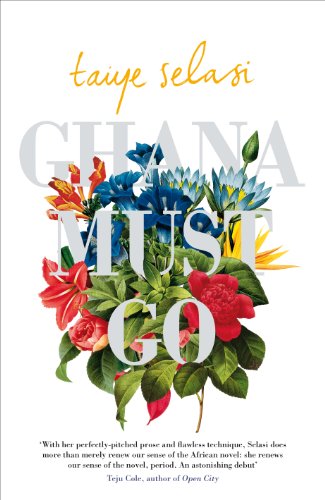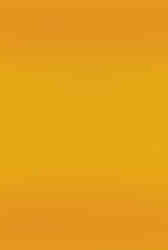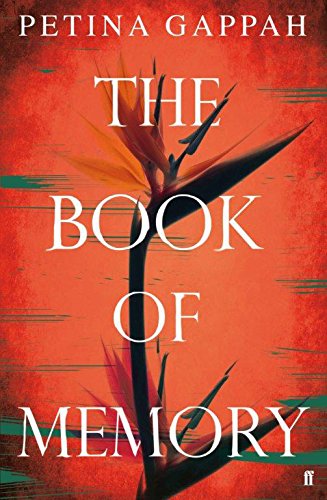Youth Feature: Meet Ianne Currie, teacher and writer from South Africa
- Nica Cornell
- Oct 26, 2018
- 6 min read
Ianne Currie is a South African teacher and writer with his Masters in African Literature. He teaches at Kitso Ya Boleng which offers the Tertiary Education Preparatory Program.
“The school was established in 2016. Increasingly our student pool comes from rural areas. We select students who have applied for the program and work with them for a year. They have training, from entrepreneurship to community engagement, with the main focus being upgrading their matric results and guiding them through the bursary and university application processes."
"We are situated in Ottosdal which is a space that isn't 'home' for any of our students. It's a level playing field, a space geared towards intensive study and preparation. Last year we had 19 students, this year 29, and next year at least 40."
"All 19 students from 2017 are enrolled in universities, all are on scholarships, and all passed their first semesters.”

Kitso Ya Baleng's TEPP program focuses on preparing students for academic as well as social aspects of of further
study while allowing them to improve their Mathematics, Physical Science and Life Science and matric results.
Ianne was originally hired to temporarily take over for the English for Academic Purposes teacher. When he was permanently hired, he was given the freedom to design his own curriculum around the idea of a ‘reading program,’ which he was inspired to do by his work as a tutor for first year students on critical thinking and literature while working at his university’s Writing Centre.
“I suggested that more of an emphasis needed to be put on reading and writing, in creating spaces where these students - none of whom speak English as a first language - could feel comfortable inhabiting English and feel like they belong in the language.”
“I think lots of people including educators have this attitude towards students where they think of them as 'not readers' if they don't show enthusiasm when they're asked to read one line in Othello or talk about literature in front of a classroom. As if people are born enjoying reading or hating reading."
"A huge part of that is actually a conversation about privilege, materials, and early childhood development. It’s a systemic and historical question, and a question about race, gender and class. People don’t realise that they are being quite latently racist, sexist or classist when they dismiss students as ‘not readers.’"
"Instead, if we think of reading as listening to stories, feeling with and for characters, being transported to a world not your own then pretty much every student could be a reader. They all love movies, series, social media, music, chatting to each other. I think that this shows a human curiosity for stories, which means that there is an opportunity with my teaching to open my students to books as carrying stories. And the differences books offer to a TV show, or a movie.”

Ianne Curry
Ianne’s work constantly inspires him, however he finds the systemic context in which he does it deeply challenging - “the huge, sometimes overwhelming, systemic failure and deficiency that my work hopes to intervene in. The problem is that the magnitude of that breakdown, from early childhood development all the way to high school is unbelievable."
"The program I work in is a one-year program after they’ve finished high school with the view to get them into university. And one year at the age of 19 is simply not enough."
"There is necessary failure built into the work I do, which is really difficult to deal with, especially because it’s not an abstract idea of ‘South Africa’s education system is failing matriculants.’ It becomes 'my student has been failed'. I am here to try and help and their application to this program is them seeking help. It’s really challenging to know our response is not enough. I’d love to work with a person and their parents from birth and be able to think of much more imaginative, potent and holistic interventions. But this is the one we’ve got."
"Thankfully, the most inspiring part fits against that narrative really well and it’s the students. All of my students are the most inspiring part, individually and collectively, a group of really curious young black South Africans who if you build an infrastructure, a safe environment, trust them with yourself, think about pedagogy carefully…the way that the students respond is so inspiring. Because they are amazing and the more ways we find to allow them to show that, the more they demonstrate themselves to be motivated and engaged."
"They are the reason I do it. Even with this massive systemic block, this infrastructure designed to debilitate, they are still there and kicking ass and going onto university and to do amazing things in their communities, country and world. It shouldn’t have to be this much of a struggle, but it is, and they are still open and alive and not jaded and disillusioned which allows me to not be jaded and disillusioned.”
Ianne chose to do a Masters in African Literature after doing an undergraduate degree in English Literature and finding himself “increasingly feeling 'what am I doing?' in terms of us rarely reading and taking seriously literature from, or about, or concerned with Africa, African people, African history. So, I must study Shakespeare and read Beowulf and then only in third year elect to do a course grossly named 'Encounter African Literature'?"
"I studied for a semester in America and realized that the conversations I was most interested in having with people were about Africa, and the way it (in all its facets) has been positioned and (ab)used throughout history. Particularly in literature, which I adore, because the power to tell stories, particular stories, about places and people, is a potent one."
"I realized that I didn't know enough, and I wanted to address that deficiency. The University of Witwatersrand has a department of African Literature, to my knowledge the only such department in SA, so I chose that degree to engage with these narratives, from here, now."
"As my political conscientization occurred and evolved, I realised that a big part of the guiding experiences in my life and thinking are literary. As I wished to decolonise my mind, I needed to decolonise my bookshelf. If I want to become a different person, reading is part of my becoming, so how do I become that person? I have to read differently. Reading differently allowed me to think differently. I’ve always gone to books as a source of authority, a way to shape and have conversations that are quite safe, just between myself and the imagined writer.”
Ianne's reading recommendations.
The role of books in Ianne’s life has influenced how he views the world – and therefore both his being a teacher and how he teaches.
“My view of books has instilled a huge optimism in me that people, if motivated, challenged, and taken seriously, can find the world and themselves in it. Books can open your mind and give you insight that you wouldn't necessarily arrive at independently.
"My approach and engagement varies from student to student. But the things that I have found common with all of my students is that if your engagement is positive and supportive, it is met with curiosity and a desire to be guided into a world, of reading, of books, that is alien to many of them. It's a collaborative project. Like when I was young, and my dad would record him reading stories onto cassettes, or my mom would take me to the library, or my aunts buy me books for my birthday. None of us can do this thing alone. So, my students and I grow in tandem. I need to listen to them and they in turn trust me to guide them to the best of my ability.”
Ianne’s journey with African literature continues but most recently his own writing has been shaped by Harare North by the Zimbabwean writer Brian Chikwava.
“Harare North is the name given to the community of the Zimbabwean diaspora living in London. They call Joburg Harare South. What I love is that it doesn’t care about the supposed conventions of language. With a lot of writers, such as Chimamanda Ngozi Adichie, the majority of the text is in standard international English, and then sometimes in dialogue she’ll use Ibo words or Yoruba phrases and italicize them. Harare North is written from the perspective of a Mugabe-loving slightly crazed sort of asylum seeker in London. This guy, his voice and the voice of the text, is exactly the way Zimbabwean English works. It isn’t interested in only slipping in a few Zimbabwean-isms."
"That linguistic leap makes the book singular, incredible, funny and relatable. It sounds like you are reading a book in which a guy from Zimbabwe is telling you his life-story, as opposed to a guy from Zim telling you his life-story in a way that makes sense to a market in Europe, America or Britain. To me, it said ‘This is how we sound. This is what our books are going to look like.’ That is exciting. I hope that is the direction a lot of African literature is going to go in. Irvine Welsh is lauded for this because he writes in the Edinburgh accent, Salman Rushdie has a lot of stuff in Mumbai English. To read a book so Zimbabwean was liberating.”
Ianne’s dream for the continent is for African stories to be increasingly recognised as important and listened to – both in Africa, and elsewhere. For him, this is true both of the stories in literary form, and of the stories we tell ourselves and each other.
Learn more about the TEPP program at https://youtu.be/c8JnOYCj5aI
Ianne’s reading recommendations include:
Ghana Must Go by Taiye Selasi
Butterfly Burning & Without a Name by Yvonne Vera.
The Book of Memory by Petina Gappah
Dust by Yvonne Owuora





















Comments